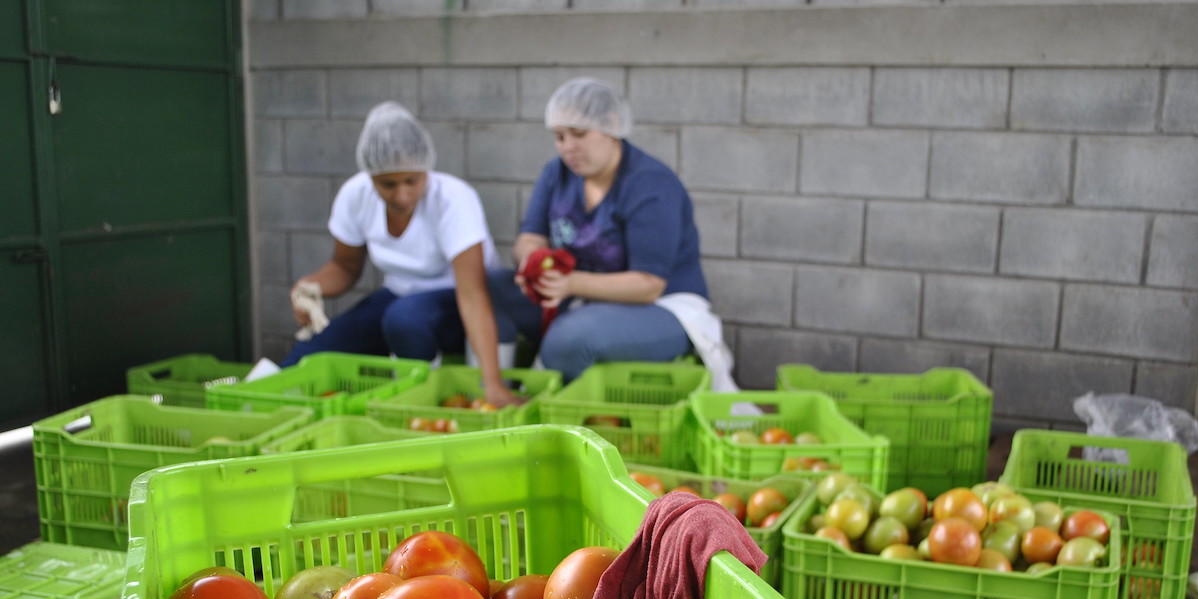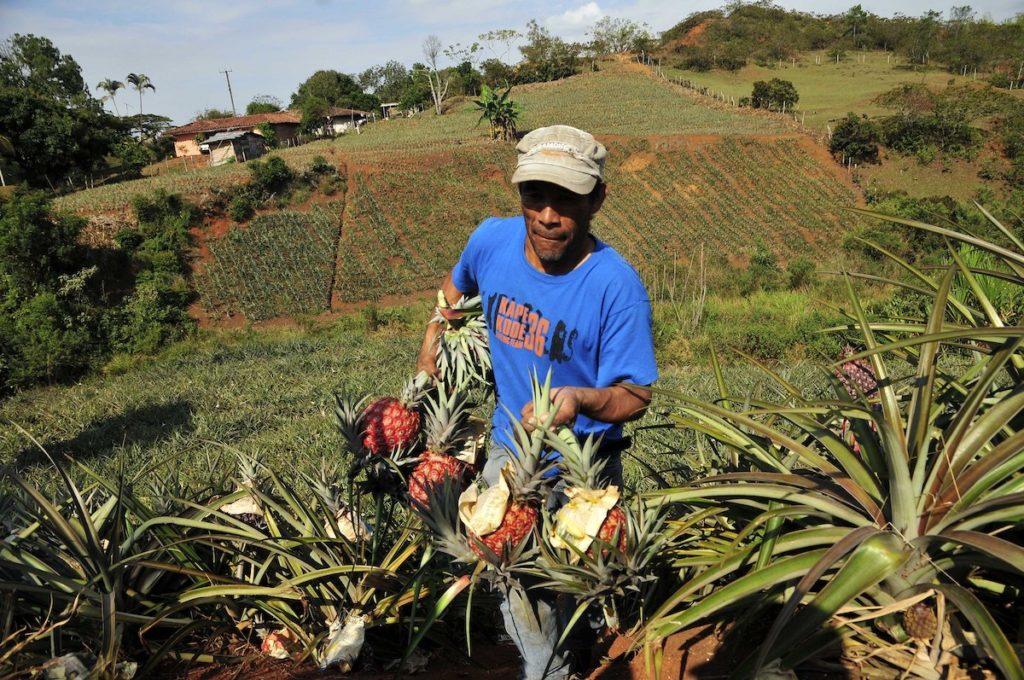Press and News Modern food security necessitates global citizenship

The United Kingdom’s reliance on fruits and vegetables from climate-vulnerable tropical countries shows how local or regional impacts from climate change have global consequences.
Food systems are intrinsically linked with many of the world’s most pressing global challenges, including malnutrition, environmental degradation, social inequities and the COVID-19 pandemic. Much needs to be done – in many cases urgently – to fulfill our commitments that food systems will provide affordable, safe and nutritious choices for everyone while protecting the earth’s natural resources and processes, and creating viable livelihoods.
Aligning these diverse food system-related goals inevitably reveals tradeoffs. And while several opportunities lead to benefits for the economy, public health and the environment, even the most straightforward solutions come with their complexities.
For example, for many industrialized countries encouraging a shift from current diets to diets lower in animal-sourced foods (such as meat and dairy) and higher in plant-based foods (such as fruit, vegetables, beans and nuts) is likely to reduce chronic diseases while also potentially lowering greenhouse gas emissions, mitigating land and water impacts, and stemming biodiversity loss. At first sight, this appears to be a win-win solution but the geographic sources of the additional plant-based foods can influence the degree of environmental sustainability and the long-term security of the supply.
A recent analysis of the availability and origin of fruits and vegetables in the U.K. food supply found that an increasing percentage of these foods were produced in countries that are vulnerable to drought, heat, and other effects of ongoing climate change, while domestic production has dwindled. Thus, if the U.K. were to expand the supply of fruits and vegetables – surely good news for nutrition – this would potentially bring along additional risks in terms of its resilience.
Given increasing agricultural challenges due to temperature and precipitation extremes, and more catastrophic weather events, the greater reliance on imports from vulnerable countries may affect the future availability and affordability of fruits and vegetables in the U.K. Climate change is also likely to negatively affect the shelf life of fresh produce and therefore increase food loss and waste.
The reported shifts in U.K. food supplies over recent decades are not unique. Around the world, countries are increasingly interconnected through food trade, an essential element of economic development, demographic and cultural change, and globalization. Food supplies in most countries have diversified over this period – at least regarding major commodities – and in so doing have become more similar to one another. The U.K.’s fruit and vegetable supply, for example, has seen an increase in the availability of tropical fruits such as bananas and pineapples, accompanied by a decrease in the relative contribution of traditional vegetables such as cabbages, carrots and peas.

A pineapple farm in Colombia. Credit: N.Palmer
The abundance of fruits, vegetables, and other foods on offer in today’s U.K. markets certainly gives the impression that the global food system isn’t in crisis. Cracks in the system would perhaps have remained abstract concepts for most consumers and policymakers, were it not for the COVID-19 pandemic and the U.K.’s withdrawal from the European Union, which have brought conversations about food security back to the dinner table.
So what should be done? First, further efforts are certainly needed to promote higher consumption of plant-based foods such as fruit, vegetables, beans and nuts. Low intake of fruits and vegetables continues to be among the leading dietary risk factors for deaths and disability-adjusted life years (DALYs) in the U.K., as with elsewhere around the world. Only 30% of adults and 18% of children in England consume the 5-a-day recommendation for fruits and vegetables, with similar or worse levels in Scotland, Northern Ireland and Wales. Working towards making fruits and vegetables the appealing, easy, and normal choice (for example by including them in buy-one-get-one-free offers), should be part of a more comprehensive strategy to promote healthy eating.
Where to source these healthy foods? The U.K. is highly dependent on food imports, with affordable and available arable land being a major constraint to increasing local production. Thus while there may be benefits to increasing local fruit and vegetable production, including lower transport emissions and new job opportunities, these can only go so far to fulfill projected needs. To bolster its food security, the U.K. would be wise to proactively support the resilience and sustainability of its internationally sourced foods. Approximately 76% of the water used in the U.K. fruit and vegetable supply chain is drawn elsewhere, including from water-scarce countries. Vast pasturelands in countries as far as Australia and Brazil support U.K. meat demand. Greenhouse gas emissions overwhelmingly occur during production, rather than in transport or other aspects of food supply chains.
Integrating sustainability concerns in U.K. trade criteria and investing in technologies that aid in climate-proofing global agriculture – including sustainable intensification of production areas as well as increasing efficiencies across supply chains – will help nudge fruit and vegetable production systems in many regions around the world toward greater resilience. Ensuring that its trade preferences align with international development objectives, and that new technologies are widely distributed so as not to exacerbate disparities within the agricultural sectors of source countries, would also help to address equity challenges.
The merger of the Department for International Development (DFID) and the Foreign and Commonwealth Office (FCO), in addition to the post-Brexit trade negotiations currently in progress, make it an opportune moment to ensure that trade aligns with human and planetary health, as well as international development objectives, delivering nutritional security, environmental sustainability, and social progress not just for the U.K. but also the countries it increasingly relies on for its sustenance.
Related studies:
Khoury C. K. et al. Trade and its trade-offs in the food system. Nature Food. (2020)
Scheelbeek, P. F. D. et al. The impact of global climate change on the resilience of UK fruit and vegetable supply: challenges to achieving a sustainable “5-a-day”. Nature Food (2020).
*This article was supported by the Sustainable & Healthy Food Systems Project, Funded by the Wellcome Trust’s Out Planet Our Health Programme.
